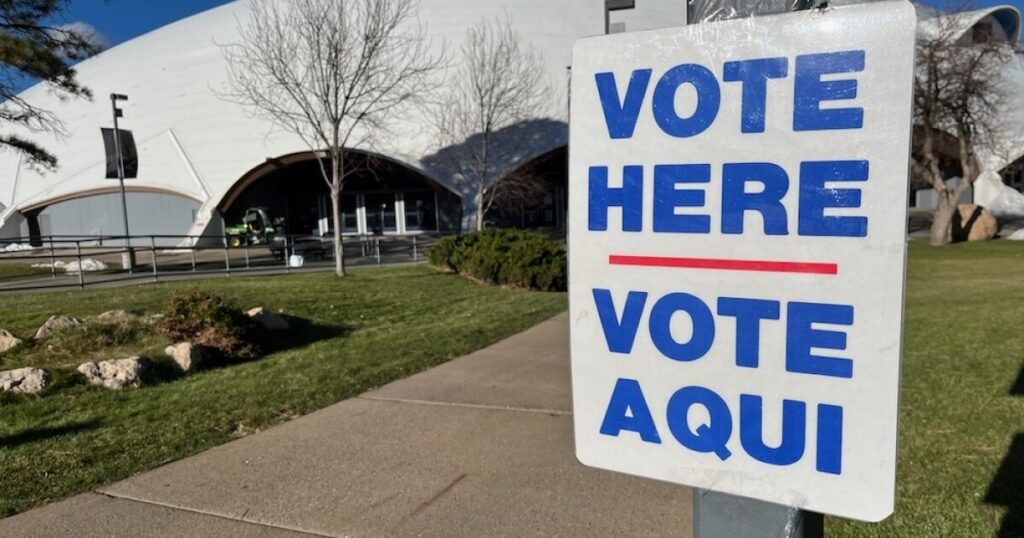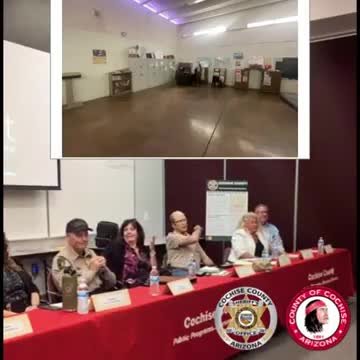Voters in northern Arizona are considering 13 statewide proposals, as well as several local measures.
Here’s a breakdown of some notable proposals across northern Arizona.
Coconino County:
Proposition 482 asks Coconino County voters to increase the amount of money county government can spend each year.
Rules passed by voters in 1980 set limits on the total amount counties could spend each year, even if money came into the county.
County officials say the restrictions have proven difficult as the county and its programs have grown over the years. To circumvent this restriction, county officials have chosen to borrow money to pay for programs and new infrastructure. But officials are now asking voters to raise the budget limit for the first time since it went into effect.
A “yes” vote on Proposition 482 would not increase local taxes, but would increase the spending limit by $7.7 million.
Yavapai County:
Just as Coconino County is seeking to increase spending limits, Yavapai County is also seeking to increase spending limits through Proposition 479.
The proposal would be much the same, with no local tax increases for residents, but the limit would increase by $7.9 million.
Payson, Kingman, Cottonwood:
Several communities in northern Arizona are asking voters to approve 10-year comprehensive plans. That includes Payson, Kingman and Cottonwood. These plans are rewritten and updated by local governments every 10 years, often with significant input from residents.
Passing a plan does not in itself change laws or policies. Instead, city officials and elected leaders will look to the plan to guide their decisions for the next 10 years. Each addresses core community issues such as open space, growth and development, water, and city and town services.
Learn more about Cottonwood’s 10-year plan. here.
Learn more about Payson’s 10-year plan. here.
Learn more about Kingman’s 10-year plan. here.
If voters object to approving a community comprehensive plan, the document will be sent back to the local government for additional work until voters are satisfied.
Flagpole store:
Proposition 487 asks Flagstaff voters to continue the 2% sales tax on hotels, short-term rentals, restaurants and bars until 2043.
City officials say the BBB tax, which stands for bed, board and drink, has been in place since 1988 and is mostly paid by visitors and tourists.
Revenue generated by taxes supports urban beautification, economic development, tourism, arts and sciences, parks and recreation projects and maintenance. Taxes generated more than $12 million in revenue last fiscal year.
This tax would impose a significantly higher sales tax on tourism-related purchases within Flagstaff. Combined with local, county, and state taxes, dining at restaurants in the city can cost more than 11% sales tax.
If voters decide not to renew the tax, it would be repealed in 2028.
Proposition 488 asks Flagstaff voters to increase the city sales tax to provide additional funding for the Mountain Line bus system.
The increase would bring the transportation sales tax to 0.5%, the equivalent of 50 cents on a $100 purchase.
Local officials say the move could significantly improve bus service, increasing the number of routes and frequencies on existing routes.
Voters first approved a pass tax in 2000 and again in 2008 and 2016. Since it was first introduced, annual ridership has grown from 100,000 to more than 2 million. Improving the availability and quality of public transport is also an important aspect of the city’s plan to reduce its carbon footprint.
A “yes” vote would increase the pass tax, while a “no” vote would leave the tax at its current level.
Prescott:
Through Proposition 478, the city of Prescott is asking voters to consider implementing a new sales tax aimed at supporting the city’s police and fire departments.
City officials say emergency services need investment as the community continues to grow, but current revenues won’t support it.
They claim the proceeds will help fund construction of a new fire station to speed up emergency response times.
If approved, the 0.95% tax on purchases will begin April 1, 2025. For $100 purchases, tax will add 95 cents.
After 10 years, the tax drops to 0.75%, adding 75 cents to every $100 purchase.
Sedona:
Prop. 483, a controversial proposal approved by the Sedona City Council earlier this year to set aside a five-acre area of the Sedona Cultural Park and allow residents living outside their cars to park there We are asking the government to consider its plans.
The plan was approved by the Sedona City Council on a 6-1 vote before opponents petitioned to leave the final decision to voters.
If the bill passes, the area would be managed by the Verde Valley Homeless Coalition.
The move comes as workers in Sedona are struggling to find affordable housing as housing prices soar in the popular tourist destination.
page:
The Page Hospital District is asking voters to continue a secondary property tax designed to fund the operations and maintenance of Page Hospital.
This measure does not increase tax rates, but allows them to continue.







